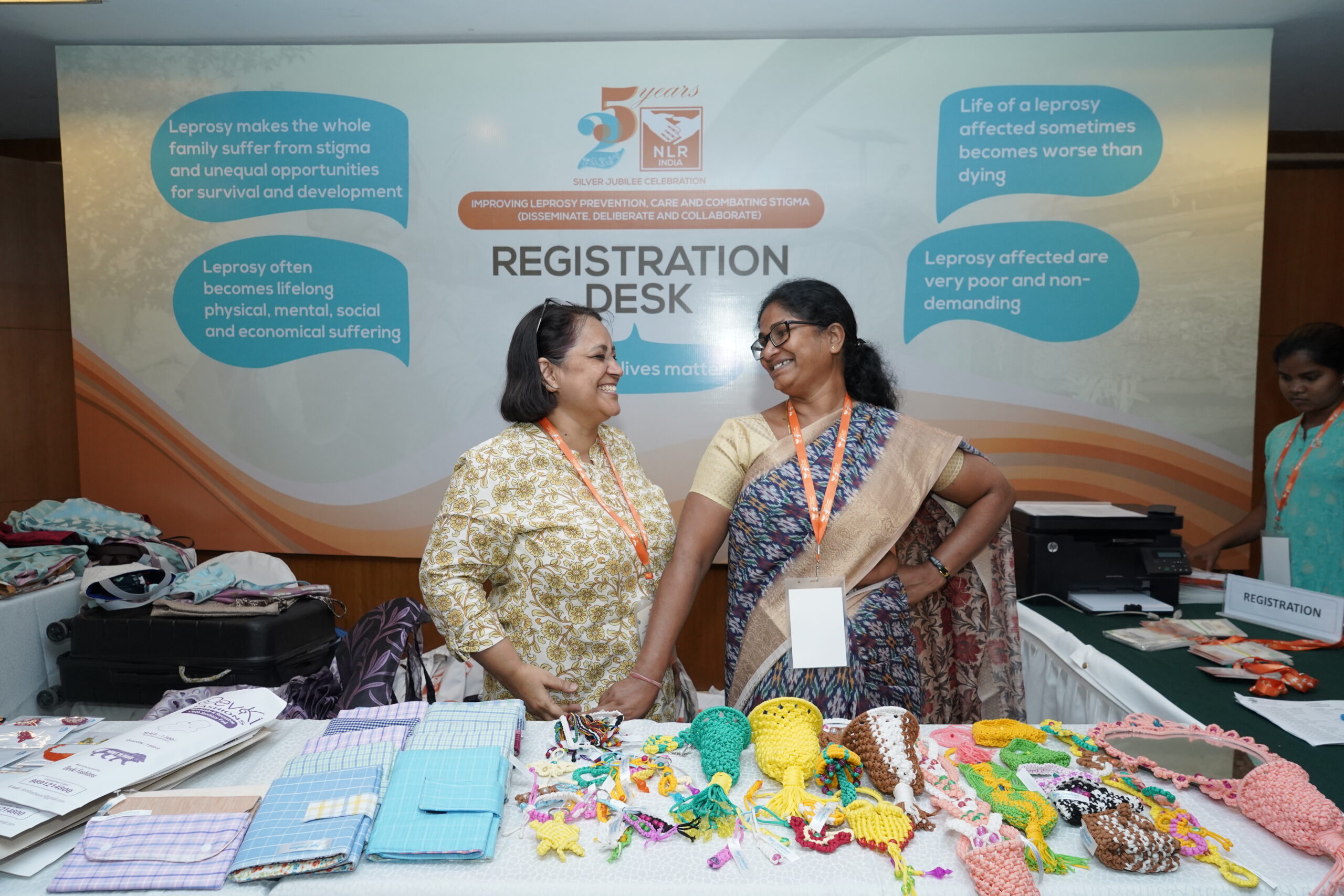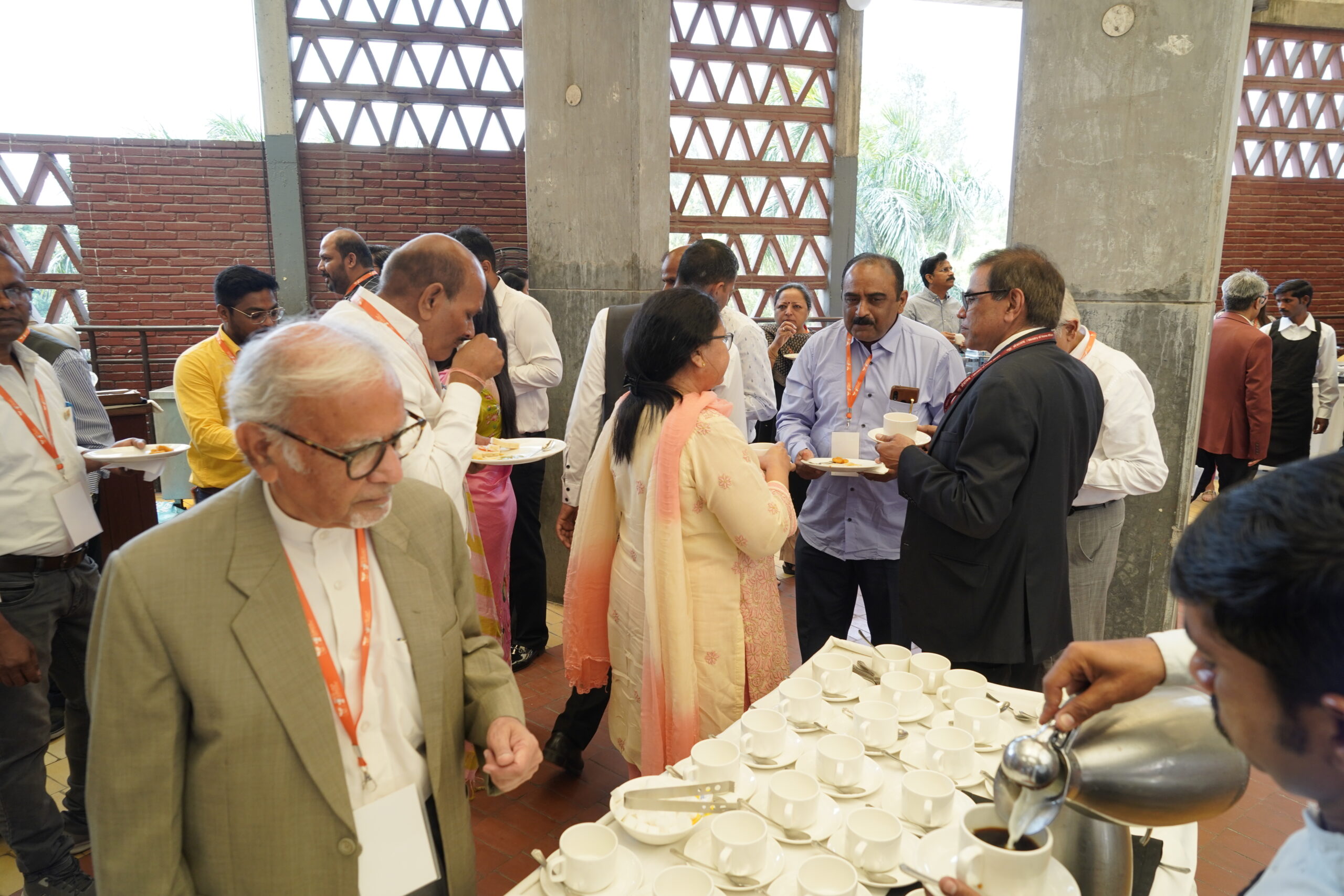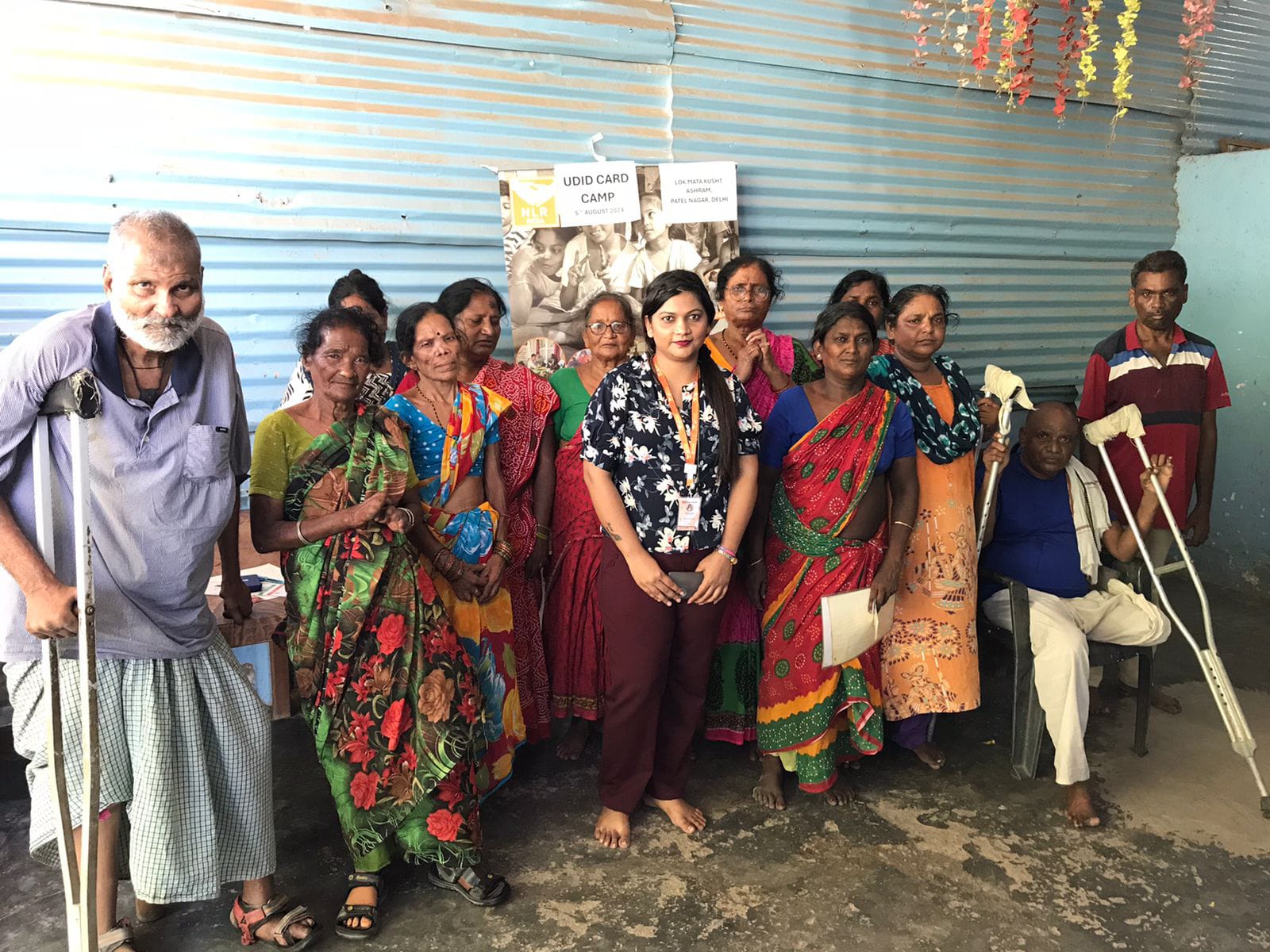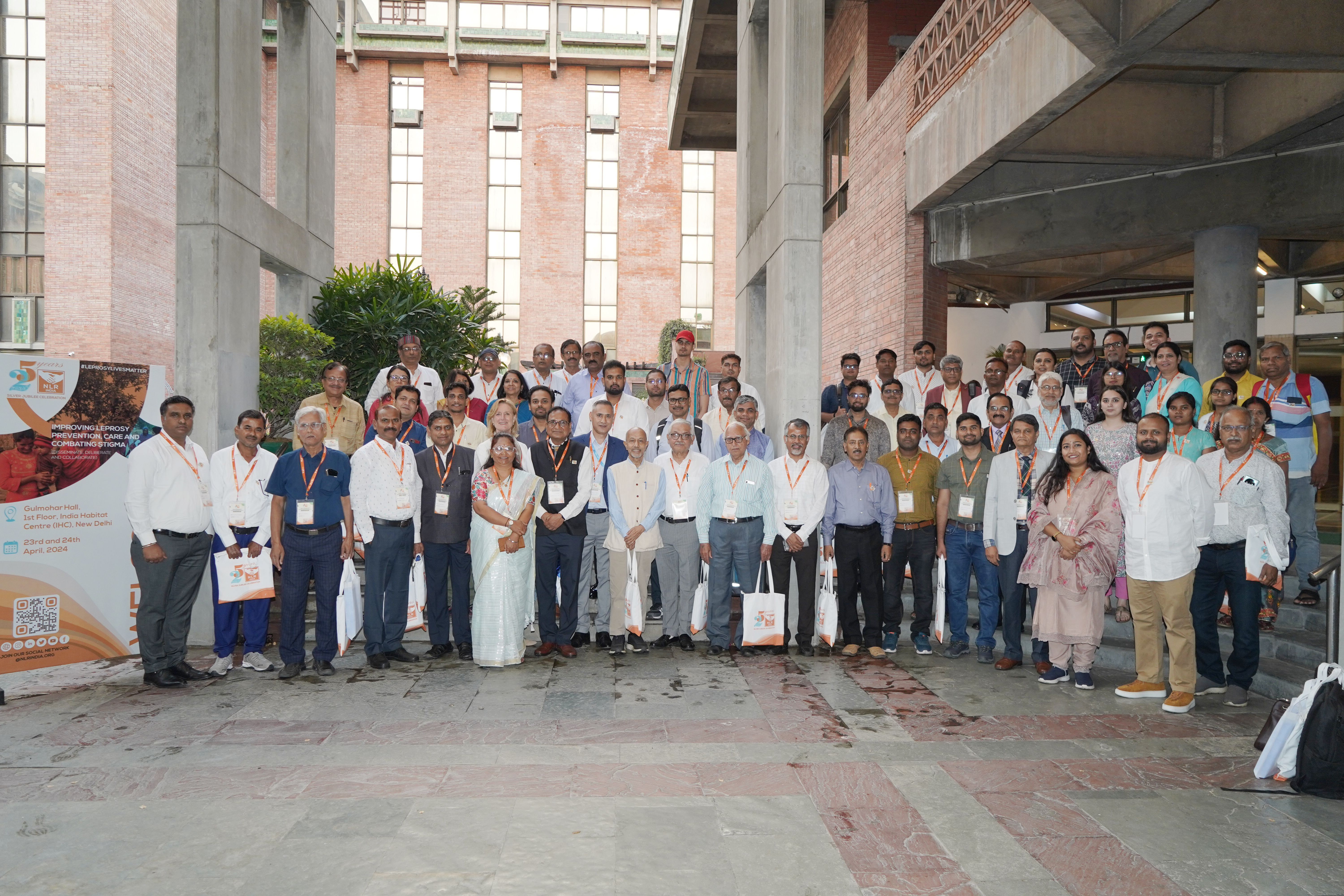
NLR India Silver Jubilee Celebration -Improving Leprosy prevention, care and combating stigma (Disseminate, Deliberate and Collaborate)
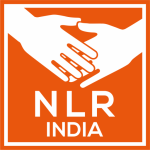

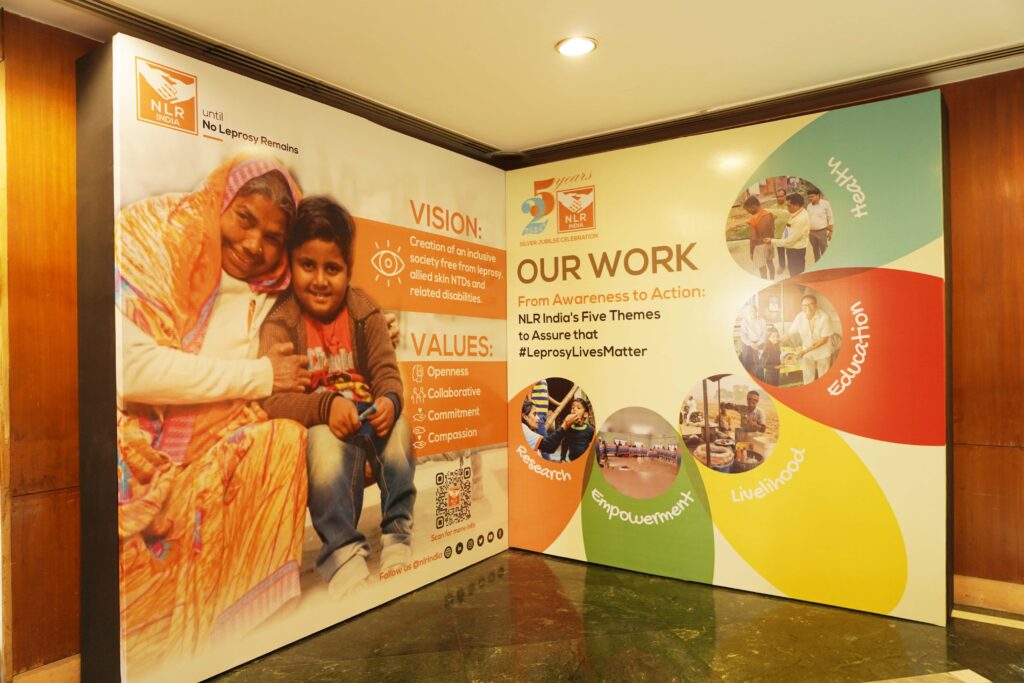
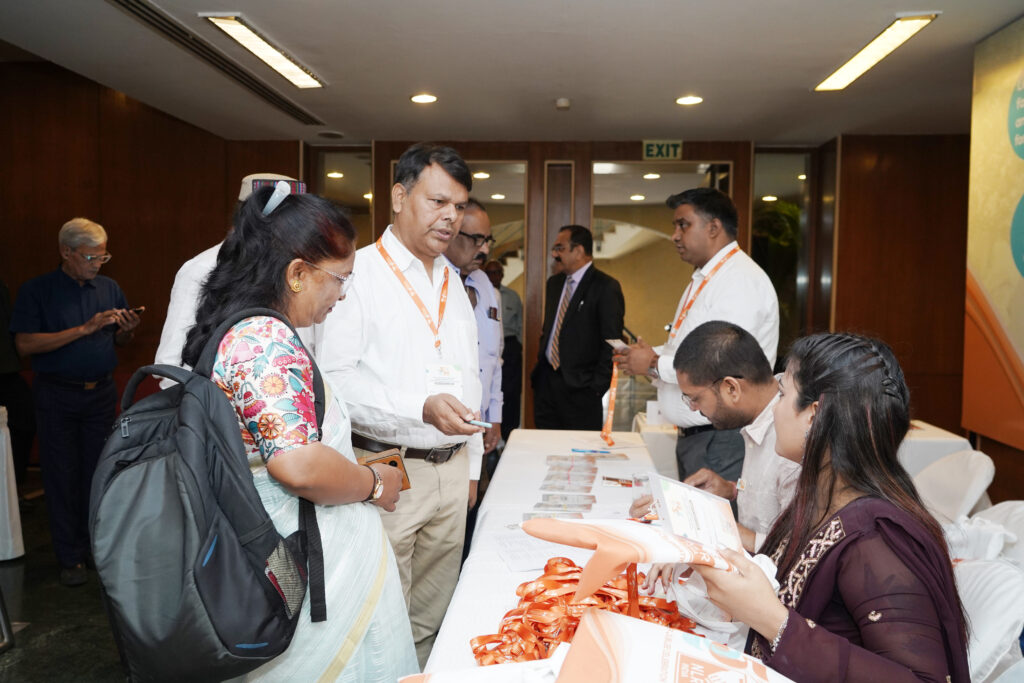
The delegates were representatives from the state and central goverments [National Human Rights Commission (NHRC), Central Leprosy Division (CLD), National Center for Disease Control (NCDC), National Center for Vector Borne Diseases Control (NCVBDC), and State Leprosy Offices]; World Health Organization (WHO); Association of Persons Affected by Leprosy (APAL); International Federation of Anti-Leprosy Associations (ILEP) and other development agencies on leprosy & allied fields; incubators, donors, NLR India change agents, peer supporters and NLR India staff.
Ms. Nirmala Gupta, Chair, Board, NLR India welcomed the delegates. She mentioned “It is not the 25 years which make it special but the opportunity which NLR India had in mitigating the suffering of the most stigmatized and ancient disease which makes it special. NLR India is working closely with government and has made several unique contributions to the cause of leprosy. The most notable being the preventive medicine and disability care”.
Sri Bharat Lal, Secretary General, NHRC, Government of India (GoI) graced the meeting as the Chief Guest. In his keynote address, he said, “people sitting here are not for power but things which work for humanity, the leprosy affected are the most marginalized people and compromised on dignity, you people are doing very meaningful work, and people working on leprosy are unsung heroes”.
The guest of honor, Dr. Anil Kumar, Principal Advisor, NCDC in his inaugural address mentioned, “NLR India is the most trusted partner of the CLD. NLR India should project the experiences of their feasibility study, implementation of single-dose rifampicin (SDR) preventive therapy and development of guidelines which led WHO to release the global WHO guidelines on SDR.”


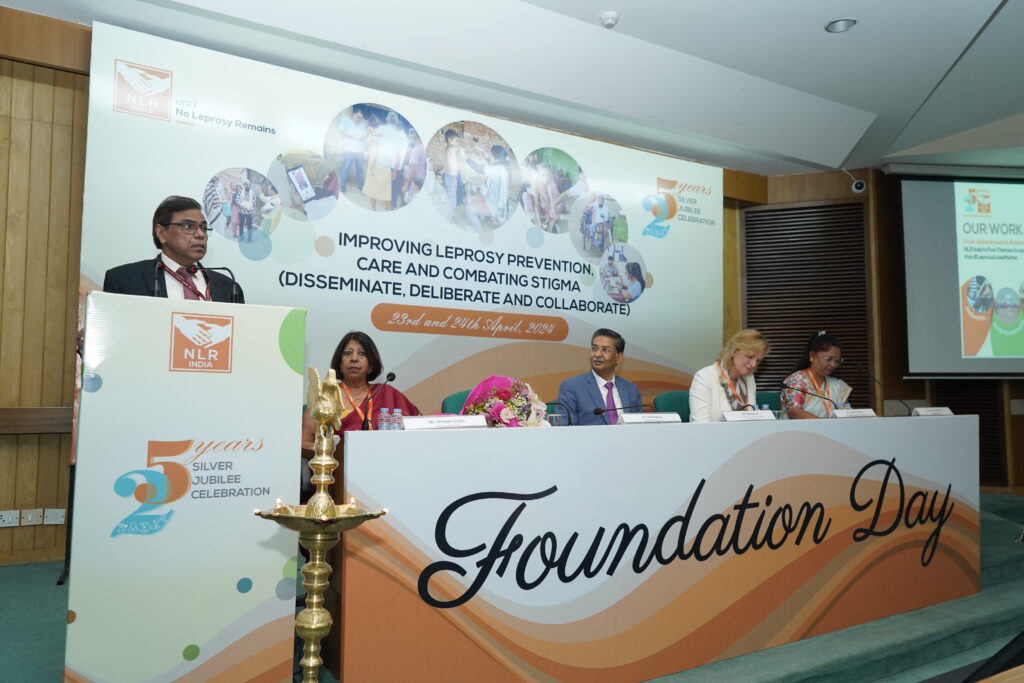
The guest of honor, Ms. Maya Ranavare, President, APAL expressed her gratitude and thanks for the efforts of NLR India towards leprosy- free community and social equity.
Ms. Linda Hummel, Chief Executive Officer (CEO), NLR International, the Netherlands in her inaugural address said “The end of leprosy is an achievable goal. But a goal we cannot achieve by ourselves. Collaboration is needed, and so I am very happy to see so many of you here today. And over these two days, I hope we can increase our collaborations and partnerships.”
Dr. Sudarsan Mandal, Sr. Chief Medical Officer, NCVBDC, and former Deputy Director General- Leprosy, CLD, MoHFW, Government of India (GoI) was felicitated as NLR India’s Champion by Sri Bharat Lal, Secretary General, NHRC, GoI.

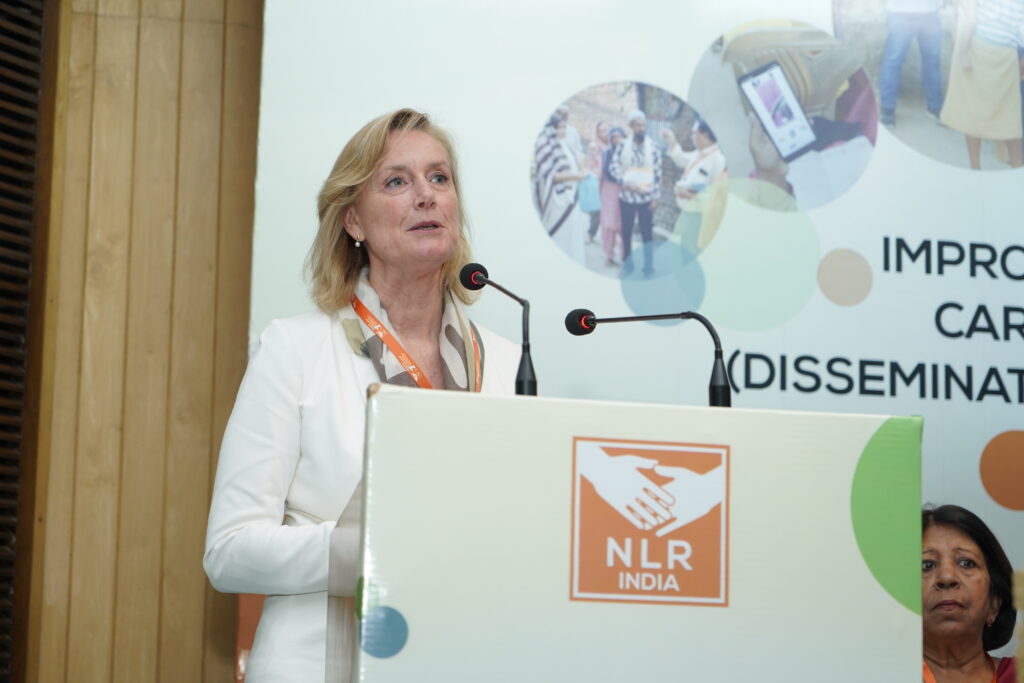
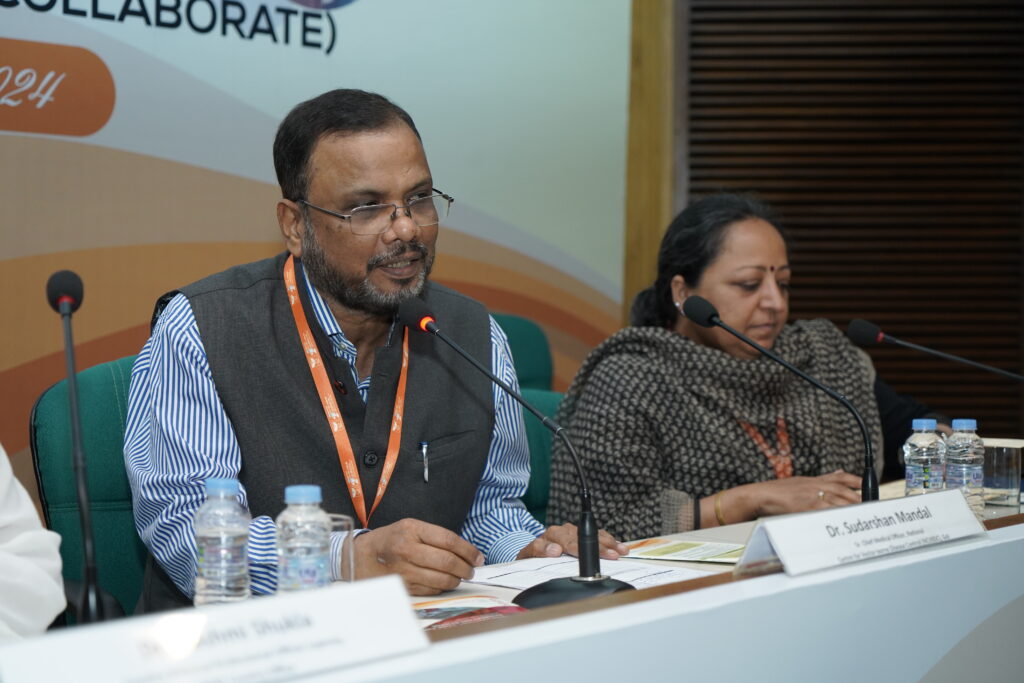
Dr. Jeya Kumar Daniel, Founder, NLR India was felicitated by Dr. Anil Kumar, Principal Advisor, NCDC, GoI.
Dr. Ashok Agarwal, CEO, NLR India during his inaugural address mentioned that NLR works closely with government nationally and in multiple high priority states, leprosy colonies and communities with the vision “Creation of an inclusive society free from leprosy, allied skin NTDs and related disabilities”. Over the 25 years, NLR India has made eight important contributions towards the national leprosy eradication programme. They are: 1] prevention of leprosy through feasibility testing and assistance in roll-out nationally of Leprosy Post Exposure Prophylaxis using Single Dose Rifampcin (SDR), 2] developed different models of disability care, 3] developed the very first community-based disability inclusive development model, 4] urban leprosy programme, 5] developed guideline for providing psychosocial support to the persons with disability due to leprosy and lymphatic filariasis, 6] development of children of leprosy affected as Change Agents, 7] guiding the adolescents living in leprosy colonies on Life Skills Education and Sexual Reproductive Health, and 8] the very first helpline on leprosy which calls the leprosy affected every 2 weeks. We are currently engaged in global research called PEP++ for enhancing the efficacy of preventive therapy.
The agenda of the meeting included sharing of NLR work, technical update on preventive therapy, NLR multi-annual strategy & alignment with government, getting feedback from the audience and discussion on collaboration and resource mobilization.
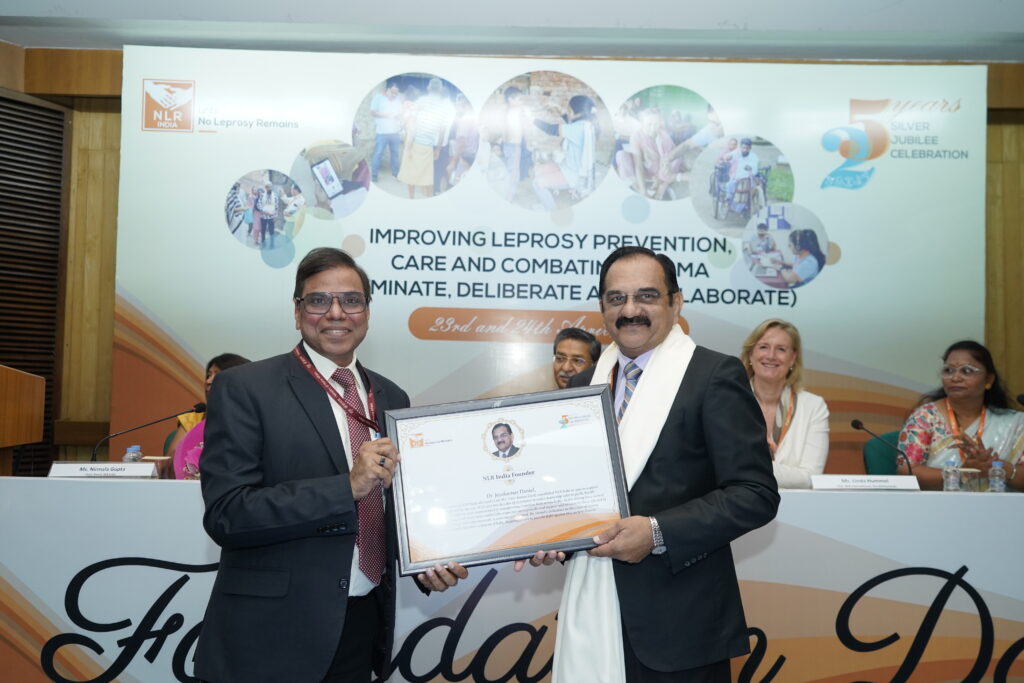


NLR India shared the evaluation findings of all its projects being implemented for many years namely the four disability care models, disability inclusive development, urban leprosy programme and helpline. The participants made critical observations on methodology, sample size, etc.; appreciated the work and provided their opinions for replication. All the projects were recommended for scale-up, however amongst the four disability care models maximum votes were for scaling-up the home-based care. Prof. K. Srinath Reddy, Distinguished Professor, Public Health Foundation of India (PHFI) & Founder (Past) President, PHFI, concluded “the evaluation is more about hypothesis generation rather than hypothesis testing, and this study merits publication”.
NLR India shared findings of the needs assessment (NA) of the leprosy colonies which depicted the need for supporting them particularly on health, education and livelihood.
The evaluation and the leprosy colony NA depicted, gender, stigma and discrimination are critical issues to be addressed.
Dr. Badri Thapa, Team Lead, Communicable Diseases, WHO Country Office said “while talking about interruption of transmission, we need to work on psychosocial aspects of leprosy affected.
During the session on Multi Annual Strategy (MAS), Prof. C.P. Mishra, Former Head of Department, Community Medicine, Banaras Hindu University, commented “NLR India should be commended for working with a comprehensive plan”.
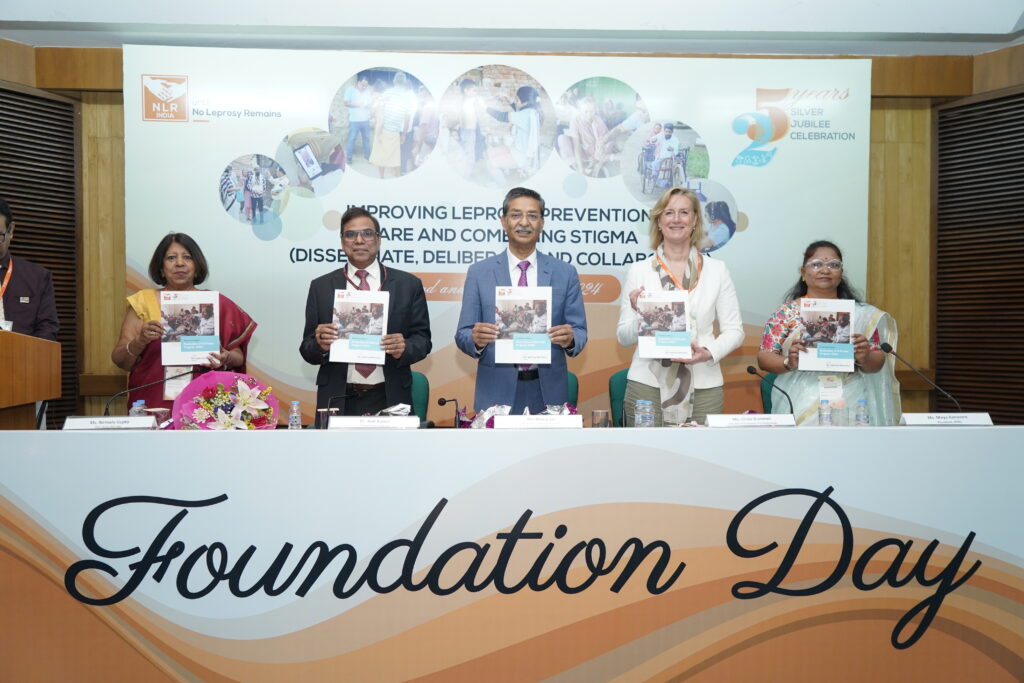
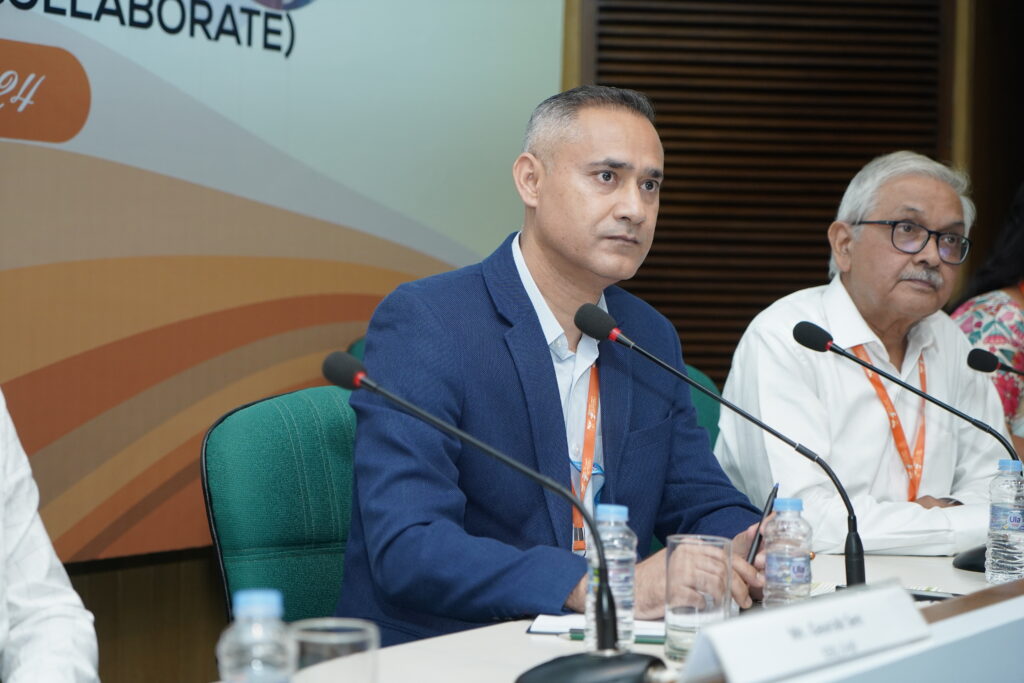
The panel discussions on collaboration consisted of only female participants – the Chair, Ms. Nirmala Gupta commented “women are better at forging collaborations”.
A collaboration agreement was signed between ECHO India and NLR India. The panel discussion on collaboration and resource mobilization motivated a number of new organizations towards the cause of leprosy namely ECHO India; Sambandh Health Foundation; Government Institute of Medical Sciences (GIMS), Uttar Pradesh; The Council of Energy Environment & Water; Tech Mahindra; Blind People Association of India; North Delhi Municipal Corporation Medical College, Hindu Rao Hospital; and Web-tech.
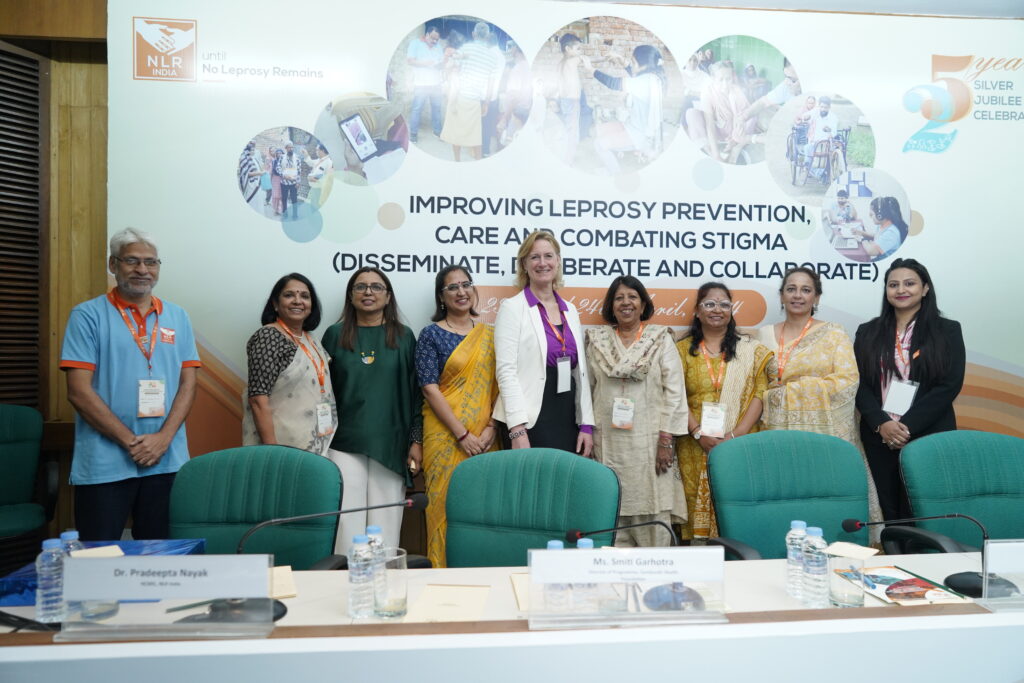
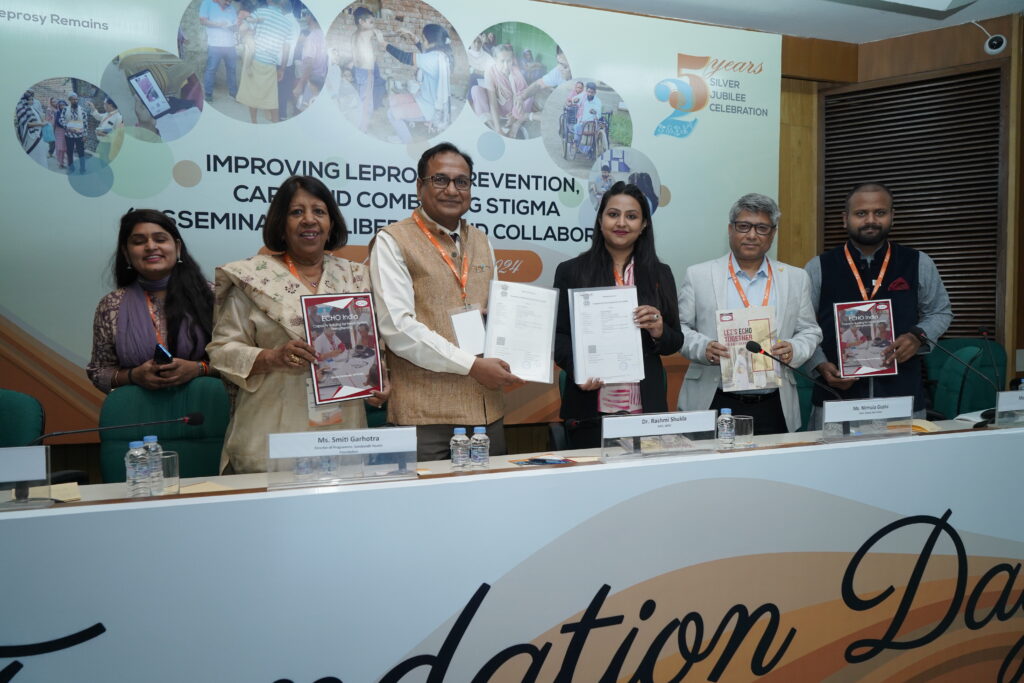
Space was provided at the registration desk for sale of products made by two female entrepreneurs – a leprosy colony resident and a fashion designer.
The meeting provided opportunity to all delegates to express themselves freely. NLR India respects all the critical feedback, opinions, recommendations and appreciations.

